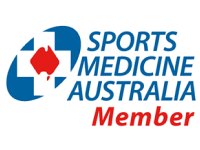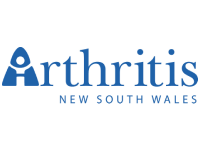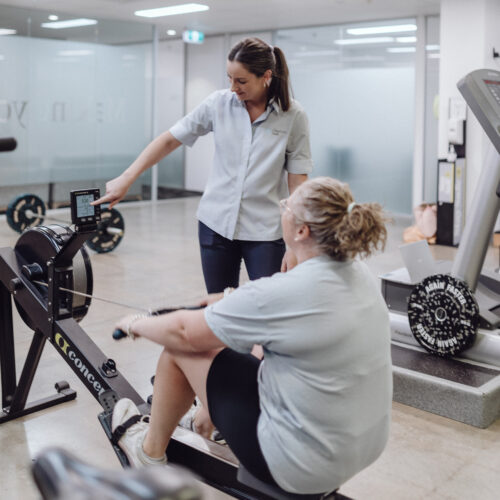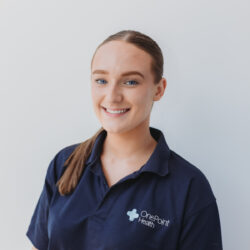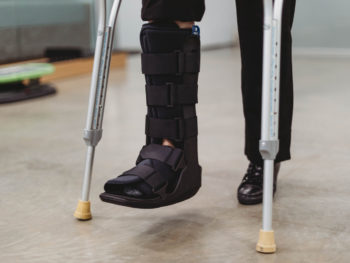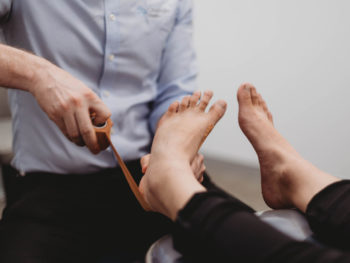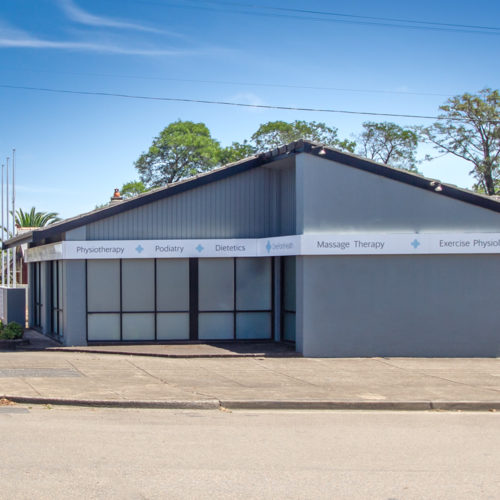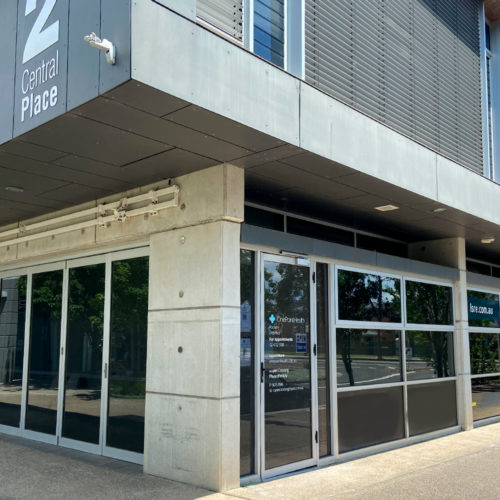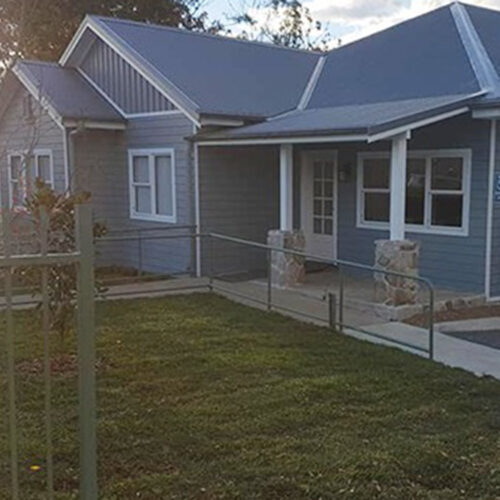Exercise Physiology is the delivery of safe and effective exercise programs to manage general well-being, manage chronic health conditions, injuries or disabilities. It not only involves the use of physical activity but education, advice and support to create behaviour changes to improve overall health and wellbeing.
Accredited Exercise Physiologists in Penrith
At OnePointHealth Penrith, we have a team of knowledgeable and experienced accredited exercise physiologists ready to help you reach your health and fitness goals. Our Penrith exercise physiologists specialise in tailored exercise programs for a wide range of conditions including:
- Cardiovascular disease
- Metabolic conditions like diabetes and obesity
- Neurological conditions like Parkinson’s disease
- Musculoskeletal injuries and arthritis
- Post-surgery rehabilitation
- Cancer recovery
- Mental health support
We create personalised exercise plans to suit your needs and abilities, using the latest evidence-based techniques. We also run specialised group exercise classes like Pilates, strength and balance classes, and hydrotherapy. These group classes are a great way to improve your fitness while being supported and monitored by our expert Penrith exercise physiology team.
What is Exercise Physiology?
Accredited Exercise Physiologists (AEPs) are university-qualified allied health professionals who prescribe and deliver physical activity and exercise-based interventions to manage a variety of musculoskeletal, cardiovascular, metabolic, neurological, respiratory, pulmonary or mental health conditions.
AEPs use evidence-based practice to provide services to a range of clientele of all ages varying from a healthy population, clients at risk of developing a chronic condition and people with chronic or age-related conditions varying in complexity. They are registered with Exercise & Sports Science Australia (ESSA), have studied at university for a minimum of four years and have met professional standards by undertaking 500 hours of practical clinical experience. AEPs must hold a valid First Aid and CPR Certificate, and expand their skill set and practice through professional development throughout their registration.
Working with an Accredited Exercise Physiologist can assist you in:
- Improving movement, strength and fitness
- Improving balance
- Improving maintain independence and quality of life
- Managing pain levels
- Decreasing the risk of developing chronic disease
What’s the difference between a Physiotherapist and an Exercise Physiologist?
Accredited Exercise Physiologists treat a range of conditions through evidence-based exercise interventions and programs as their main modality covers a range of acute and chronic conditions. Physiotherapists are trained in assessing and diagnosing acute or chronic musculoskeletal injuries or conditions and offer hands-on treatment and provide some initial strength or stretching exercises to manage such injuries.
Physiotherapists are typically involved with the initial or acute phases of injury management, whereas AEPs receive the diagnosis and continue the rehabilitation process to enhance rehabilitation. AEPs can cover a broader range of conditions that extend past musculoskeletal injuries including diabetes, cardiovascular disease, respiratory diseases (such as COPD), neurological diseases (MS, cerebral palsy), mental health conditions and/or cancer.
When should I see an Exercise Physiologist?
An AEP can assist in managing a variety of conditions. Early Intervention is highly recommended for optimal results and AEPs can assist at the time of initial diagnosis as well as post-diagnosis. Sometimes life gets in the way, our motivation or our goals can change, or we just simply don’t know where to start.
Our AEPs can assist in both initiating exercise programs as well reviewing programs to reflect changes in circumstances or goals. If you have been diagnosed or you have been living with any of the following, it may be time to see an AEP:
Cardiopulmonary Condition
- Hypertension
- Coronary Heart Disease
- Peripheral Vascular Disease
- Myocardial Infarction (heart attack)
- Asthma
- Chronic Obstructive Pulmonary Disease (COPD)
Metabolic Condition
- Obesity
- Hypercholesterolaemia
- Diabetes Mellitus or Impaired Glucose Tolerance
Musculoskeletal Condition
- Osteoarthritis/Rheumatoid Arthritis
- Osteoporosis
- Acute or chronic musculoskeletal injuries
Neurological Condition
- Parkinson’s Disease
- Multiple Sclerosis
- Cerebral Palsy
- Spinal Cord Injury or Brain Injury
- Stroke
AEPs can also offer services for a variety of other conditions including:
- Cancers
- Mental Health Conditions
- Healthy ageing/conditions related to ageing
- Falls prevention
Services from an AEP can be delivered in a range of modalities both supervised and unsupervised. Supervised sessions can be completed in the clinic as an individual session, or as part of a group exercise class. Our AEPs can also prescribe a home or gym-based exercise program to be completed externally. Our group classes include:
- Pilates
- Strength, Conditioning and Balance Class
- I’mPossible Group Class
Our Approach to Exercise Physiology
At OnePointHealth we pride ourselves on using evidence-based practice and are committed to best approach practice using a multidisciplinary approach. In-house, we have a range of services additional to Exercise Physiology including Physiotherapy, Podiatry, Massage Therapy, Chiropractic Therapy and Dietetics. Having all services under one roof provides a high level of convenience for clients and provides the best level of care.
Our AEPs have a vast array of knowledge and passion for bettering the lives of our clients. We believe in improving everyday function and promoting healthy ageing to decrease the risk of morbidity/mortality and maintain independence as greatly as possible. We utilise evidence-based practice and continue to develop skills and knowledge through continued education, both externally and in-house amongst all our disciplines allowing us to focus on a person-centred approach to treatment and stay up to date with recent research.
